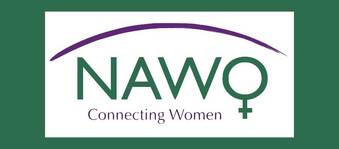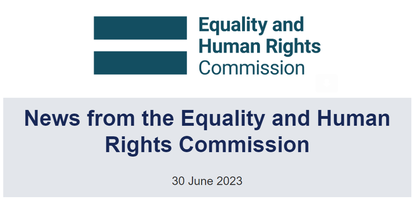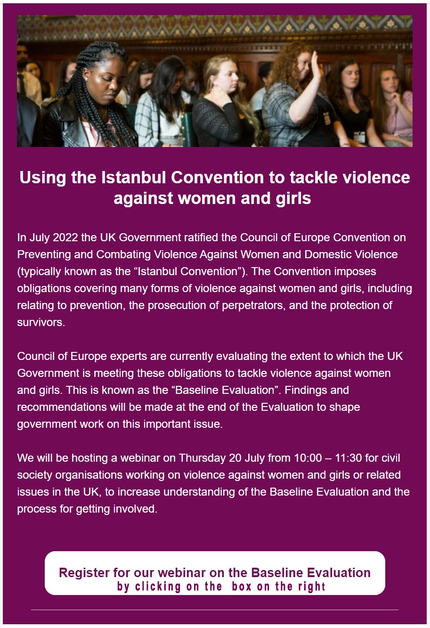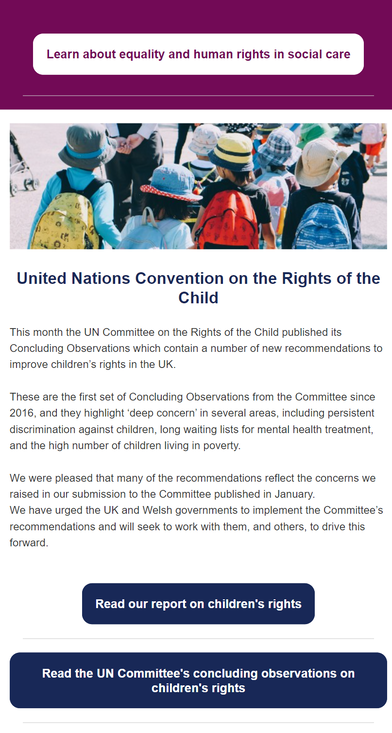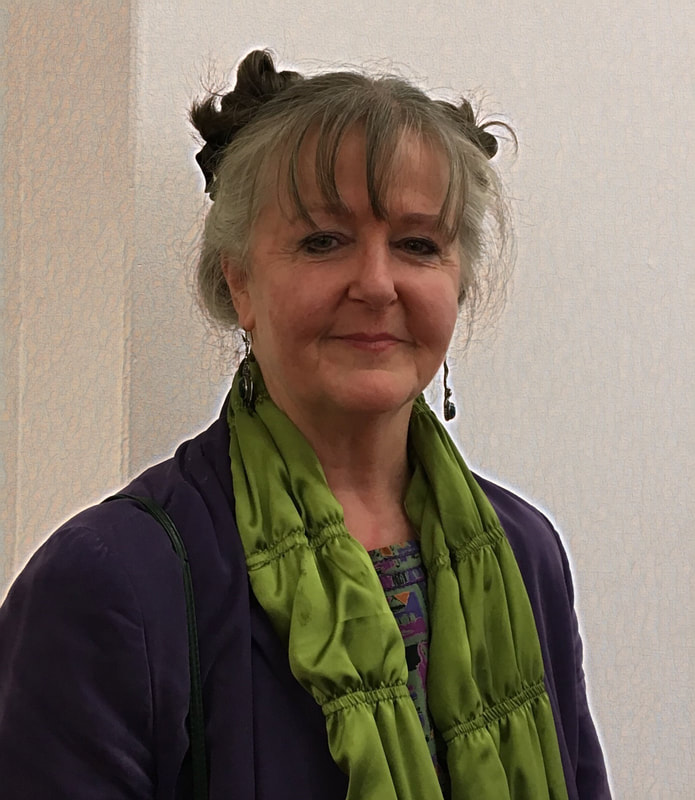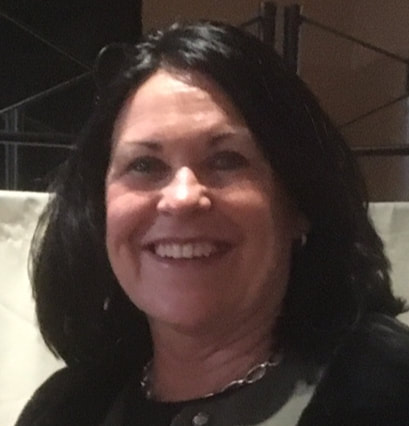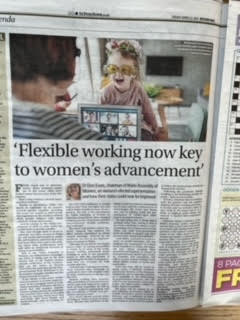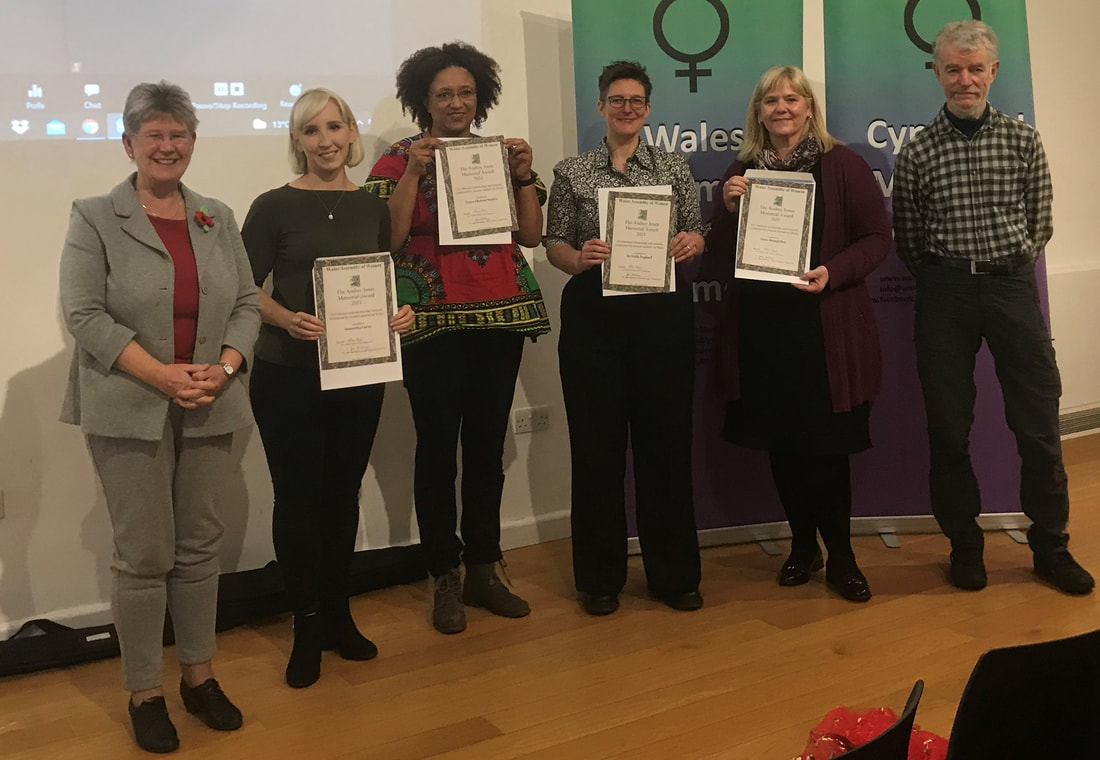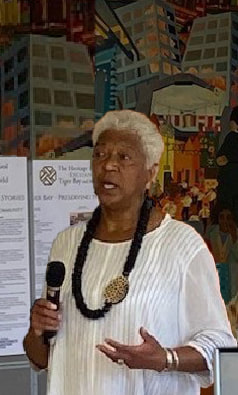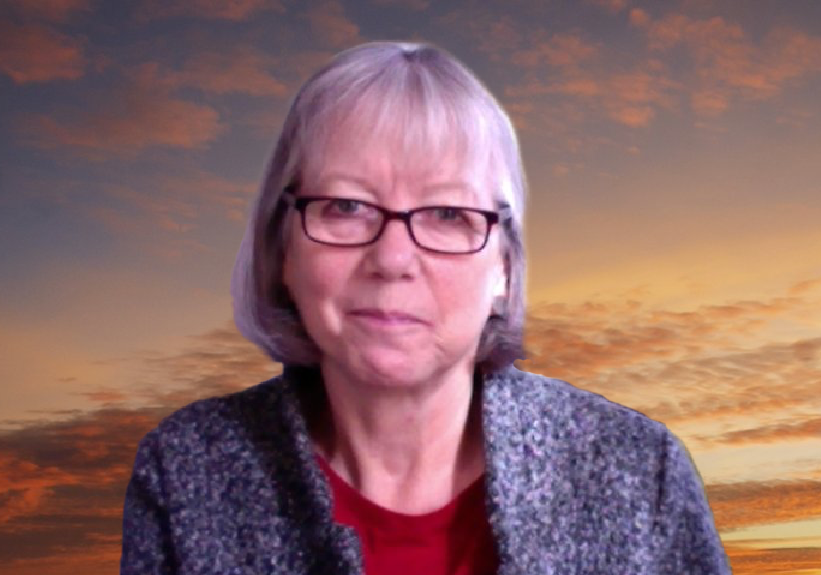WAW: NAWO June Newsletter and Instabul Convention review plus Beijing+30
& a meeting on 27th July
Dear All,
The UK have published the report on the Instabul Convention on Action against violence against women and domestic violence has been sent to GREVIO, the body at the Council of Europe responsible for monitoring the Convention. Civil Societies have the opportunity to submit at report as well. If anyone has any particular things they feel need to be included. It would be great if we could get together with other Welsh groups to ensure a Welsh perspective. Time is a bit short as this will need to be complied by Oct. The GERVIO wish to visit Wales as well as the other devolved countries to talk about the implementation at the start of 2024 here from Civil Society member. The report is link on this Council of Europe web page https://www.coe.int/en/web/istanbul-convention/-/grevio-receives-state-report-for-the-united-kingdom
The Equality and Human Rights Commision have a webinaire on Thursday 20 July from 20 July 1-2,30pm for civil societies to increase Baseline Evaluation of the Convention. You can book for the via Eventbrite
https://www.eventbrite.co.uk/e/using-the-istanbul-convention-to-tackle-violence-against-women-and-girls-tickets-667450912647?aff=oddtdtcreator
Every 5 years, there is a review of the Beijing Declaration and Platform for Action. To be reminded of the 12 critical areas for concern (which affect all our lives) here is the UN Women reference
https://www.unwomen.org/en/digital-library/publications/2015/01/beijing-declaration
https://www.unwomen.org/en/news/in-focus/csw59/feature-stories
As in previous years (apart from 2020) the NGOCSW Geneva is leading on the civil society engagement with our region which is “Western Europe and Other States” – the UN regional commission is called UNECE. The Member States pre Beijing +30 meeting will be the week of 21 October 2024. It is envisaged that there will be engagement with Member States on each of the 12 Critical Areas of Concern leading up that date and civil society has been invited to participate. If any of your organisations have expertise in any of the 12 critical areas of concern and would like to be included in the relevant event, please let me know. In addition there will be a two day civil society event in the lead up to the prep-com. There will also be task forces of the UKCSW Alliance that will work via zoom up till then to come up with recommendations to member states. Please let me know if you are interested, so that we can share this with the NGOCSW Geneva task force working on Beijing +30.
The next full UK CSW Alliance meeting on Thursday 27 July at 4pm will look at issues around the law and abortion following questions raised following the jailing of Carla Foster. We hope to have a safe conversation about the issues. Plans to send a letter on the issue to the Minister has been postponed until we have had this discussion.
The NAWO Newsletter follows.
Best wishes Jane
The UK have published the report on the Instabul Convention on Action against violence against women and domestic violence has been sent to GREVIO, the body at the Council of Europe responsible for monitoring the Convention. Civil Societies have the opportunity to submit at report as well. If anyone has any particular things they feel need to be included. It would be great if we could get together with other Welsh groups to ensure a Welsh perspective. Time is a bit short as this will need to be complied by Oct. The GERVIO wish to visit Wales as well as the other devolved countries to talk about the implementation at the start of 2024 here from Civil Society member. The report is link on this Council of Europe web page https://www.coe.int/en/web/istanbul-convention/-/grevio-receives-state-report-for-the-united-kingdom
The Equality and Human Rights Commision have a webinaire on Thursday 20 July from 20 July 1-2,30pm for civil societies to increase Baseline Evaluation of the Convention. You can book for the via Eventbrite
https://www.eventbrite.co.uk/e/using-the-istanbul-convention-to-tackle-violence-against-women-and-girls-tickets-667450912647?aff=oddtdtcreator
Every 5 years, there is a review of the Beijing Declaration and Platform for Action. To be reminded of the 12 critical areas for concern (which affect all our lives) here is the UN Women reference
https://www.unwomen.org/en/digital-library/publications/2015/01/beijing-declaration
https://www.unwomen.org/en/news/in-focus/csw59/feature-stories
As in previous years (apart from 2020) the NGOCSW Geneva is leading on the civil society engagement with our region which is “Western Europe and Other States” – the UN regional commission is called UNECE. The Member States pre Beijing +30 meeting will be the week of 21 October 2024. It is envisaged that there will be engagement with Member States on each of the 12 Critical Areas of Concern leading up that date and civil society has been invited to participate. If any of your organisations have expertise in any of the 12 critical areas of concern and would like to be included in the relevant event, please let me know. In addition there will be a two day civil society event in the lead up to the prep-com. There will also be task forces of the UKCSW Alliance that will work via zoom up till then to come up with recommendations to member states. Please let me know if you are interested, so that we can share this with the NGOCSW Geneva task force working on Beijing +30.
The next full UK CSW Alliance meeting on Thursday 27 July at 4pm will look at issues around the law and abortion following questions raised following the jailing of Carla Foster. We hope to have a safe conversation about the issues. Plans to send a letter on the issue to the Minister has been postponed until we have had this discussion.
The NAWO Newsletter follows.
Best wishes Jane
Our thoughts and sympathies continue to go out to the people in Ukraine during these difficult times. We join them in praying for peace for the whole world.
Owing to Pat being away I have been invited to write the Chair’s Report for the June Newsletter when Refugee Week falls.
With Refugee Week’s 25th Anniversary some of you will be aware that the theme chosen was Compassion (thanks to Refugee Week for content and banner). But let’s hope we can take the theme of celebrating what compassion actually looks like into action. Together we can create a shared understanding of compassion and encourage all our wonderful members that we take this theme beyond just Refugee Week into the rest our year.
Refugee Week explains with a quote from Albert Einstein and requests a call to widen our circles of compassion.
“Our task must be to free ourselves – by widening our circles of compassion to embrace all living creatures and the whole of nature in its beauty”.
The last few years have been challenging for all of us. We are still adjusting to new realities post-lockdown as well as responding to new crises. In the UK, dangerous anti-migration government rhetoric continues, along with inhumane conditions for asylum seekers.
But, none of these things happen in isolation. We know how interconnected our world is: how something seemingly “far away” impacts everyone. All of this makes us even more aware of the need to widen our circles of compassion.
Within our own lived experiences are all the tools we need to be compassionate, not just to ourselves and those in our immediate circle but to all our human neighbours and beyond into the wider world.
If you are on social media – please do hashtag the following:
I know that some of our wonderful NAWO Members may have articles or creative works on the theme of Refugees and Compassion or indeed any other related issues. Please do submit to us via the Newsletter and we will be delighted to publish in the next edition.
With warmest wishes and thanks for your continued support of NAWO and all we represent as an umbrella organisation.
Together we are Stronger!
Alice Fookes,
Vice-Chair NAWO UK
Owing to Pat being away I have been invited to write the Chair’s Report for the June Newsletter when Refugee Week falls.
With Refugee Week’s 25th Anniversary some of you will be aware that the theme chosen was Compassion (thanks to Refugee Week for content and banner). But let’s hope we can take the theme of celebrating what compassion actually looks like into action. Together we can create a shared understanding of compassion and encourage all our wonderful members that we take this theme beyond just Refugee Week into the rest our year.
Refugee Week explains with a quote from Albert Einstein and requests a call to widen our circles of compassion.
“Our task must be to free ourselves – by widening our circles of compassion to embrace all living creatures and the whole of nature in its beauty”.
The last few years have been challenging for all of us. We are still adjusting to new realities post-lockdown as well as responding to new crises. In the UK, dangerous anti-migration government rhetoric continues, along with inhumane conditions for asylum seekers.
But, none of these things happen in isolation. We know how interconnected our world is: how something seemingly “far away” impacts everyone. All of this makes us even more aware of the need to widen our circles of compassion.
Within our own lived experiences are all the tools we need to be compassionate, not just to ourselves and those in our immediate circle but to all our human neighbours and beyond into the wider world.
If you are on social media – please do hashtag the following:
- #Refugees
- #CompassionIntoAction
- #SimpleActs
I know that some of our wonderful NAWO Members may have articles or creative works on the theme of Refugees and Compassion or indeed any other related issues. Please do submit to us via the Newsletter and we will be delighted to publish in the next edition.
With warmest wishes and thanks for your continued support of NAWO and all we represent as an umbrella organisation.
Together we are Stronger!
Alice Fookes,
Vice-Chair NAWO UK
- Wales Assembly of Women -
|
Five Audrey Jones Research Awards Presented
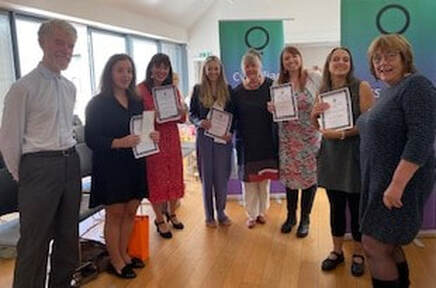
Research awards that hold up a mirror to the reality of women’s lived experience of their lives in Wales were presented to the Awardees of the Audrey Jones Awards for Research by Women.
Wales Assembly of Women who run the Awards were delighted this year to award FIVE Audrey Jones Awards for Research by Women.The standard of applications was so high – WAW decided to break with tradition and invite five women to talk about their research and its impact on the lives of women in Wales.Now in their sixth year the Awards, held in memory of Audrey Jones a founder member of Wales Assembly of Women and who campaigned for women’s rights across the globe, were presented by Audrey’s son Robert Jones, who funds the Award scheme.
Audrey Jones Award Co-ordinator Dr Jane Salisbury, who knew Audrey Jones, said Audrey was always really keen to hear about research that affected the lives of women and that she would be delighted the Audrey Jones Awards hold up a mirror to the lived reality of women in Wales.The Awards were presented to:
- Robin Andrews, University of South Wales: Evaluating the effects of symptom monitoring as a health resource for menopausal women
- Dr Amy Sanders, Aberystwyth University: Institutionalising Equalities? Exploring the Engagement of Equalities Organisations in the Welsh Third Sector-Government Partnership
- Annamaria Sgueglia, Cardiff University: Women in Planning in South Wales – Guests in Their Own Profession?
- Catherine Phillips, Cardiff University: No does not mean convince me: How gender norms affect young people’s understanding of coercion and consent in relationships
- Sarah Cavill, Cardiff University: Comparing the Occupational Balance and Social Capital of Mothers With and Without Postnatal Depression Symptoms
Wales Assembly of Women at the UN Commission on Status of Women 66 Parallel Event
Have changed working practices improved women’s empowerment?
Opening Virtual Doors
Wales is a small nation within the UK with big ambitions to tackle gender inequality. The panel will present robust research that explores how remote attendance at virtual council meetings, enforced by the pandemic, has empowered women and increased their participation and representation in local government. It will reflect on how changed working practices could have a positive effect on reversing male bias in recruitment to small cities. Woman have seen of better digital accessibility. The panel will examine how women have been empowered in the changing world of work.
Speakers:
- Dr Jane Salisbury - honorary fellow at Cardiff University's School of Social Sciences
- Leah Hibbs- Lecturer in Social Sciences at Cardiff University
- Dr Jane Croad - an academic
In recent days (21st -22nd March '22) there has been national media interest in WAW's question:
"Have changed working practices improved women’s empowerment?"
Hear some of the answers from WAW/UN panellists, Leah Hibbs (BBC news and Woman's Hour, Radio 4), and from Jane Croad (Western Mail) at the links below
https://www.bbc.co.uk/news/uk-wales-60777983 - BBC News (21/03/22)
https://www.bbc.co.uk/sounds/play/m0015lsd - Woman's Hour (22/03/22)
https://www.bbc.co.uk/sounds/play/m0015lsd - Woman's Hour (22/03/22)
Building on her 2020 Audrey Jones award, Leah Hibbs, has recently had 2 articles published
Hibbs, L. 2022. "I was able to take part in the chamber as if I was there"- women local councillors, remote meeting attendance, and Covid-19: a positive from the pandemic? Journal for Cultural Research (Gendered Pandemic special issue forthcoming). Available here: https://doi.org/10.1080/14797585.2021.2011365
Hibbs, L. 2022. “I could do that!”– The role of a women's non-governmental organisation in increasing women's psychological empowerment and civic participation in Wales. Women's Studies International Forum 90. Available here: https://doi.org/10.1016/j.wsif.2021.102557
The Politics of Change: Sledgehammers and Bicycles
Lis Burnett, Vale of Glamorgan Council deputy leader, spoke at our annual conference about the importance of having women in local government and the difference they make to ways of working and political prioritisation. Among the examples Lis used to demonstrate why it was important to have women at the table is the change in tone and content of conversations around issues such as food poverty and the needs of carers. Enjoy her references to big red marker pens and buses!
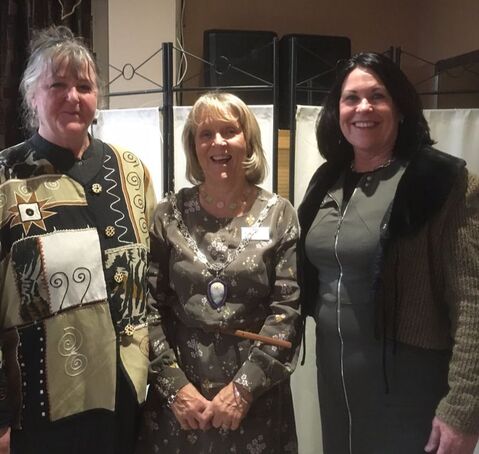 Pictured L to R are Jane Salisbury, Val Simpson and Jane Croad.
Pictured L to R are Jane Salisbury, Val Simpson and Jane Croad.
Val Simpson President of the Barry and District Soroptimist Club welcomed Dr. Jane Croad of WAW as an after dinner speaker on Wednesday 17th November. Jane talked about her doctoral research and consultancy work. Attracting skilled people to cities was the theme of the talk which explored key attraction motivators.
WAW members (who are also Soroptimists) Dr. Jane Salisbury and Prof. Gerda Roper introduced and gave formal thanks to Dr.Croad for an engaging talk.
WAW members (who are also Soroptimists) Dr. Jane Salisbury and Prof. Gerda Roper introduced and gave formal thanks to Dr.Croad for an engaging talk.
Wales Assembly of Women Annual Conference took place on Saturday 13 November
Inequalities in the lives of women in Wales to be shared with Welsh Government
Evidence, data and lived experience about the inequalities that exists in the lives of women in Wales when they face homelessness, pregnancy, caring for an adult child with schizophrenia and seeking sanctuary, are to be shared with the Welsh Government following the annual conference of Wales Assembly of Women.
Welsh Government Minister for Social Justice Jane Hutt MS said research such as that presented at the conference was vital in closing the implementation gap between policy and practice by providing the lived experience of women. It shone a light on inequality and she would share it with the relevant Welsh Government Ministers, so that it could be used to help build a more fair and equal Wales where no one was left behind.
The Minister was presenting the Awards for this year’s Audrey Jones Awards for Research by Women, run by Wales Assembly of Women, and said that, as always, the research presented highlighted evidence, data and lived experience of women in Wales.
Vale of Glamorgan MS Jane Hutt, who was a friend of Audrey Jones and has presented the Awards since their introduction in 2016, said: ‘I have been reflecting on the Audrey Jones Awards and it is great to see robust research and evidence used to make a difference to women’s lives and not just ending up on a shelf. ‘
Dr Jane Salisbury, who coordinates the Audrey Jones Awards, said the level of entries this year had been outstanding and as a result a decision had been taken to present four Awards.
She said: ‘Audrey would have been overwhelmed by the quality of the research we have heard today and absolutely delighted that Jane Hutt will share it with colleagues in Welsh Government where it can make a real difference to women’s lives.’
The Audrey Jones Awards for Research by Women, were established by Wales Assembly of Women in memory founder member Audrey Jones, a deputy headteacher at St Cyres comprehensive school in Penarth, who represented Wales Assembly of Women at numerous United Nations conferences campaigning for women’s rights. The purpose of the Awards is to provide hard evidence to back equality campaigns, create a platform for women researchers, and build a bridge between academic study and public policy.
The four awardees were Dr Edith England of Cardiff University’s School of Geography & Planning who focused on how victims of domestic violence are stigmatized within the homelessness system in Wales; Samantha Garay of Cardiff University’s School of Biosciences tackled the paucity of pregnancy research in Wales; Alicia Stringfellow
Welsh Government Minister for Social Justice Jane Hutt MS said research such as that presented at the conference was vital in closing the implementation gap between policy and practice by providing the lived experience of women. It shone a light on inequality and she would share it with the relevant Welsh Government Ministers, so that it could be used to help build a more fair and equal Wales where no one was left behind.
The Minister was presenting the Awards for this year’s Audrey Jones Awards for Research by Women, run by Wales Assembly of Women, and said that, as always, the research presented highlighted evidence, data and lived experience of women in Wales.
Vale of Glamorgan MS Jane Hutt, who was a friend of Audrey Jones and has presented the Awards since their introduction in 2016, said: ‘I have been reflecting on the Audrey Jones Awards and it is great to see robust research and evidence used to make a difference to women’s lives and not just ending up on a shelf. ‘
Dr Jane Salisbury, who coordinates the Audrey Jones Awards, said the level of entries this year had been outstanding and as a result a decision had been taken to present four Awards.
She said: ‘Audrey would have been overwhelmed by the quality of the research we have heard today and absolutely delighted that Jane Hutt will share it with colleagues in Welsh Government where it can make a real difference to women’s lives.’
The Audrey Jones Awards for Research by Women, were established by Wales Assembly of Women in memory founder member Audrey Jones, a deputy headteacher at St Cyres comprehensive school in Penarth, who represented Wales Assembly of Women at numerous United Nations conferences campaigning for women’s rights. The purpose of the Awards is to provide hard evidence to back equality campaigns, create a platform for women researchers, and build a bridge between academic study and public policy.
The four awardees were Dr Edith England of Cardiff University’s School of Geography & Planning who focused on how victims of domestic violence are stigmatized within the homelessness system in Wales; Samantha Garay of Cardiff University’s School of Biosciences tackled the paucity of pregnancy research in Wales; Alicia Stringfellow
The Politics of Change: Women Making a Difference
Gaynor Legall is a powerful advocate for ethnic minority women across Wales. Born and brought up in Butetown, Cardiff, Gaynor has managed to combine fulltime work, political activism and voluntary sector involvement, with raising a family. She is married with a daughter and two stepsons. Gaynor is fiercely proud of her origins and of the fact that she grew up in the multi-cultural, multi-religious area of Cardiff once known as Tiger Bay, much maligned and misunderstood by the wider community, it gave her the foundation she needed to do the things she wanted to do – make changes.
Gaynor stared work as a Nursery Nurse at 18, she then trained as a State Registered Nurse, later switching careers to become a social worker, the latter leading to senior managerial posts focussing on social policy. She believes that policy formation should start with service delivery, i.e. what is it you want to do. Gaynor became “politicised” in her teens, involving herself in local challenges and campaigns.
Gaynor is a founder member of Wales Anti-apartheid, helping to grow the organisation from a Cardiff based group to a national campaign and was the first Black City Councillor in Wales. Gaynor is a collaborator and has worked with other like-minded people to establish a number of voluntary organisations such as FullEmploy Wales, a job and training organisation for inner city youth, AWETU, a Black mental health charity, BAWSO the first Black domestic violence organisation in Wales. Gaynor has been involved in several television and radio programmes relating to inequalities and was awarded a Lifetime Achievement by the Ethnic Minority Welsh Women Achievement Association.
Gaynor has now retired from full-time employment and is the chair of The Heritage & Cultural Exchange, a community-based organisation that aims to fully chronicle the heritage together with the cultural diversity of Tiger Bay and Cardiff Docklands, and bring it to the world. Gaynor recently led the task and finish group established by the Welsh Government to undertake an audit of public monuments, street and building names associated with aspects of Wales’ Black history. The exercise focused on the slave trade and the British Empire, but it also touched on the historical contributions to Welsh life of people of Black heritage. Gaynor is also part of the steering group co-producing the first Race Equality Action Plan for Wales.
Gaynor stared work as a Nursery Nurse at 18, she then trained as a State Registered Nurse, later switching careers to become a social worker, the latter leading to senior managerial posts focussing on social policy. She believes that policy formation should start with service delivery, i.e. what is it you want to do. Gaynor became “politicised” in her teens, involving herself in local challenges and campaigns.
Gaynor is a founder member of Wales Anti-apartheid, helping to grow the organisation from a Cardiff based group to a national campaign and was the first Black City Councillor in Wales. Gaynor is a collaborator and has worked with other like-minded people to establish a number of voluntary organisations such as FullEmploy Wales, a job and training organisation for inner city youth, AWETU, a Black mental health charity, BAWSO the first Black domestic violence organisation in Wales. Gaynor has been involved in several television and radio programmes relating to inequalities and was awarded a Lifetime Achievement by the Ethnic Minority Welsh Women Achievement Association.
Gaynor has now retired from full-time employment and is the chair of The Heritage & Cultural Exchange, a community-based organisation that aims to fully chronicle the heritage together with the cultural diversity of Tiger Bay and Cardiff Docklands, and bring it to the world. Gaynor recently led the task and finish group established by the Welsh Government to undertake an audit of public monuments, street and building names associated with aspects of Wales’ Black history. The exercise focused on the slave trade and the British Empire, but it also touched on the historical contributions to Welsh life of people of Black heritage. Gaynor is also part of the steering group co-producing the first Race Equality Action Plan for Wales.
Lis Burnett: Lis was first elected to the Vale of Glamorgan Council in 2004. Lis was re-elected in May 2012 when she was appointed Cabinet Member with responsibility for Regeneration, Innovation, Planning and Transportation. She was subsequently Deputy Leader and Cabinet Member for Education and Regeneration. Formerly Head of Social Entrepreneurship at the University of South Wales, Lis has previously run her own business, worked for a major UK multi-national company and for NESTA, the UK's innovation foundation. She has acted as an advisor to Welsh Government and the then Welsh Assembly on Social Enterprise. She has been involved in delivering innovative community to community aid projects in Uganda and in 2012 was invited to become a Fellow of the Royal Society of Arts in recognition of her contribution to social enterprise in Wales.
Records of early women’s rights campaigns go into the Archives
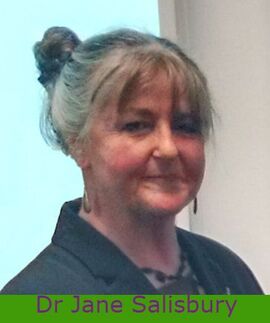
Papers and documents from the time of the early women’s rights movement in Wales have been deposited in Glamorgan Archives on behalf of Wales Assembly of Women. They record the work of the Wales Women’s Rights Committee, set up in the 1970s to lobby for sex discrimination legislation and the setting up of the Equal Opportunities Commission, the group that morphed into Wales Assembly of Women in 1984.
The 1970s was a significant time for women’s rights, when legislation was beginning to mirror women’s aspirations. But practice was slow to follow policy. Neither the Equal Pay Act of 1970 nor the Sex Discrimination Act 1975 seemed to change things much. The Rights Committee was at the forefront of movements inside and outside Wales determined to change all that.
The records include details of the Wales Women’s March for Jobs , coordinated by Dr Salisbury as part of national protests in 1982, when Prime Minister Margaret Thatcher’s cuts made millions unemployed. They marched, 150 strong, from Ynysangharad Park in Pontypridd to Cardiff City Hall, where they were met by an official deputation led by the Lord Mayor.
Wales Women’s Rights Committee morphed into Wales Assembly of Women in 1984.
The papers were collated by Dr Jane Salisbury, who now co-ordinates the Assembly’s annual Audrey Jones Awards for Research by Women, when she was secretary of the Rights Committee. She kept them safe until she passed them on to Dr Jean Silvan Evans, who was writing an article on the history of Wales Assembly of Women for the 2020 edition of Morgannwg, journal of the Glamorgan History Society.
A special highlight in the papers relate to the all-Wales Women’s March for Jobs, held in September 1982 as part of national protests against Prime Minister Margaret Thatcher’s cuts that made three to four million people unemployed. The march was organised by the Rights Committee’s young secretary Jane Salisbury and the papers show its success and popular appeal.
Some 150 women gathered in Ynysangharad Park in Pontypridd, where they were waved off with a rousing speech from the iconic Annie Powell, who gained headlines all over the world when she was elected Communist mayor of the Rhondda and hailed as the only Communist mayor in Britain – ironically just two weeks after Margaret Thatcher became Prime Minister in 1979!
Marching with the women was a delegation from the Miners’ Union. The Rights Committee always took part in the annual Miners’ Gala in Sophia Gardens, once dressed as suffragettes, complete with suffragette sashes made by Jane Salisbury – and the miners took the chance to return the favour.
The march made its long but lively way to Cardiff City Hall, where the women were met, to great applause, by an official deputation led by the Lord Mayor. Among the newspaper headlines it gathered was ‘Dad holds baby while mum walks’, a reference to another group of supportive men, the Cardiff Men Against Sexism, who did the traditional ‘women’s work’ to support the march by organising a creche and catering.
Wales Assembly of Women is delighted the early work of Dr Jane Salisbury has been preserved in this way. A copy of the catalogue description for the records can be viewed on the Glamorgan Archives online catalogue ‘Canfod’ under the document reference D1812
http://calmview.cardiff.gov.uk/Record.aspx?src=CalmView.Catalog&id=D1812.
The 1970s was a significant time for women’s rights, when legislation was beginning to mirror women’s aspirations. But practice was slow to follow policy. Neither the Equal Pay Act of 1970 nor the Sex Discrimination Act 1975 seemed to change things much. The Rights Committee was at the forefront of movements inside and outside Wales determined to change all that.
The records include details of the Wales Women’s March for Jobs , coordinated by Dr Salisbury as part of national protests in 1982, when Prime Minister Margaret Thatcher’s cuts made millions unemployed. They marched, 150 strong, from Ynysangharad Park in Pontypridd to Cardiff City Hall, where they were met by an official deputation led by the Lord Mayor.
Wales Women’s Rights Committee morphed into Wales Assembly of Women in 1984.
The papers were collated by Dr Jane Salisbury, who now co-ordinates the Assembly’s annual Audrey Jones Awards for Research by Women, when she was secretary of the Rights Committee. She kept them safe until she passed them on to Dr Jean Silvan Evans, who was writing an article on the history of Wales Assembly of Women for the 2020 edition of Morgannwg, journal of the Glamorgan History Society.
A special highlight in the papers relate to the all-Wales Women’s March for Jobs, held in September 1982 as part of national protests against Prime Minister Margaret Thatcher’s cuts that made three to four million people unemployed. The march was organised by the Rights Committee’s young secretary Jane Salisbury and the papers show its success and popular appeal.
Some 150 women gathered in Ynysangharad Park in Pontypridd, where they were waved off with a rousing speech from the iconic Annie Powell, who gained headlines all over the world when she was elected Communist mayor of the Rhondda and hailed as the only Communist mayor in Britain – ironically just two weeks after Margaret Thatcher became Prime Minister in 1979!
Marching with the women was a delegation from the Miners’ Union. The Rights Committee always took part in the annual Miners’ Gala in Sophia Gardens, once dressed as suffragettes, complete with suffragette sashes made by Jane Salisbury – and the miners took the chance to return the favour.
The march made its long but lively way to Cardiff City Hall, where the women were met, to great applause, by an official deputation led by the Lord Mayor. Among the newspaper headlines it gathered was ‘Dad holds baby while mum walks’, a reference to another group of supportive men, the Cardiff Men Against Sexism, who did the traditional ‘women’s work’ to support the march by organising a creche and catering.
Wales Assembly of Women is delighted the early work of Dr Jane Salisbury has been preserved in this way. A copy of the catalogue description for the records can be viewed on the Glamorgan Archives online catalogue ‘Canfod’ under the document reference D1812
http://calmview.cardiff.gov.uk/Record.aspx?src=CalmView.Catalog&id=D1812.

